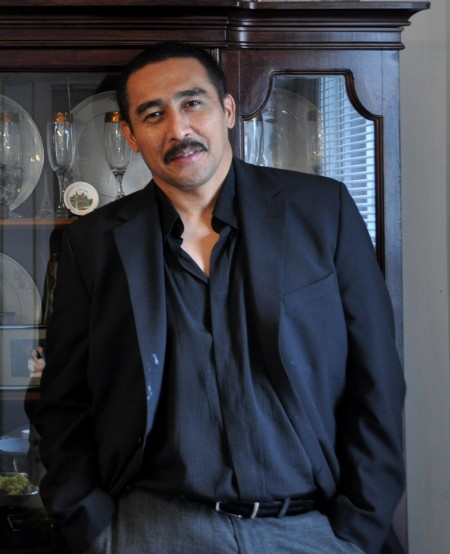We honor two previously unknown heroes today. The Tanenbaum Center for Interreligious Understanding announces its 2011 and 2012 Peacemakers in Action awardees: Rev. Jacklevyn “Jacky” Frits Manuputty of Indonesia and Dishani Jayaweera of Sri Lanka.
Reverend Jacklevyn “Jacky” Frits Manuputty, Indonesia
 To nourish peace in the Maluku islands of Indonesia, Rev. Jacklevyn “Jacky” Frits Manuputty promotes an interdependent society, strengthens communal bonds and facilitates public initiative and participation.
To nourish peace in the Maluku islands of Indonesia, Rev. Jacklevyn “Jacky” Frits Manuputty promotes an interdependent society, strengthens communal bonds and facilitates public initiative and participation.
In 1999-2003, violent clashes between Muslims and Christians in Maluku killed 10,000 people and displaced over 500,000. Rev. Jacky responded with peace campaigns and advocacy nationally and internationally. Because he engaged all parties, he was at times labeled “enemy” by Christians and Muslims alike, as well as the Indonesian military and police. He persisted despite death threats and the destruction of his home by arson. Rev. Jacky personally signed the Malino II Peace Agreement, which ended the violence.
Concerned by the lack of local reconciliation efforts, he co-founded the Maluku Interfaith Institution for Humanitarian Action (LAIM). LAIM creates institutional capacity-building programs, develops positive public discourse, and builds a network of pluralistic conflict prevention observers. Using a multi-level/stakeholder approach, LAIM builds interfaith peace groups of journalists, women, religious leaders and students. In its “live-in” program, clergy men and women spend overnights in each other’s homes in order to build trust and work together to solve social problems in the country. Rev. Jacky and his colleagues have developed a peace curriculum, an interfaith peace sermon program and a trauma healing program. Additionally, LAIM seeks to build the community development and peacebuilding capacity of the local government.
When violence flared again in 2011, Jacky formed groups of youth “Peace Provocateurs,” whose social media and “texting for peace” campaigns were widely recognized for their success in limiting the scope of the conflicts and preventing them from spreading. Many of his models have been adapted for use in other parts of Indonesia.
You can view the permanent profile page here.
Dishani Jayaweera, Sri Lanka
A dynamic former attorney from Sri Lanka’s capital, Colombo, Dishani left the legal profession in answer to a deeper calling—to work closely with people throughout Sri Lanka to create a peaceful and just society.
Dishani founded the Centre for Peacebuilding and Reconciliation (CPBR) in 2003 with her husband, Dr. Jayantha Seneviratne. Their organization, for which Dishani serves as Executive Director, operates on the belief that the process of building peace begins with individuals. CPBR targets young people and religious leaders, understanding them to be powerful shapers of social attitudes and behaviors in Sri Lanka, and key to bridging religious and ethnic divisions.
In its work, CPBR encourages personal transformations that will in turn empower communities to seek structural and political change. CPBR’s interfaith work promotes understanding among Sinhalese Buddhists, Tamil Hindus, Muslims, and Tamil and Sinhalese Christians through dialogue, training in conflict analysis and transformation, and supporting clergy as they mobilize communities to experience the joy of interdependence and co-existence.
The power of CPBR’s work lies in their process. They truly practice what they preach, ensuring that all decision-making is decentralized and empowering participants to shape the projects. The CPBR team is intentionally diverse, and the entire staff, under Dishani’s guidance, makes a concerted effort to develop deep relationships of trust with the participants in their projects, often traveling to the field to participate in funerals, religious ceremonies, and other events of importance to the communities. This has created an authentic, large, and dedicated network of local peacebuilders; some 400 religious leaders participated in a recent event. Participants of CPBR often list Dishani’s (and Jayantha’s) personal commitment to the project and the respect they received as motivation for their own peacebuilding work.
You can view the permanent profile page here.